The object of war is not to die for your country but to make the other bastard die for his
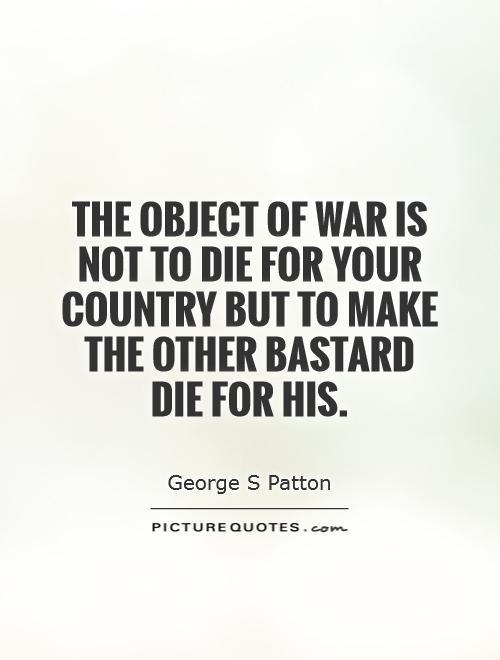
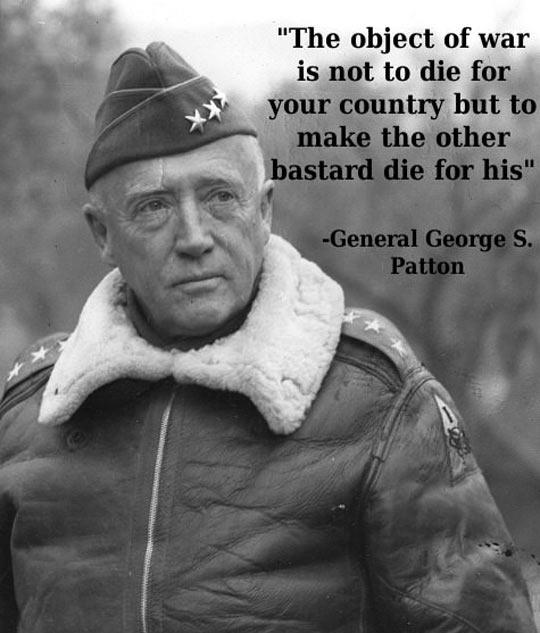
The object of war is not to die for your country but to make the other bastard die for his
General George S. Patton, a legendary figure in American military history, is often remembered for his bold and aggressive leadership style during World War II. One of his most famous quotes is, "The object of war is not to die for your country but to make the other bastard die for his." This statement encapsulates Patton's ruthless determination to achieve victory at any cost.Patton's words reflect his belief in the necessity of inflicting maximum damage on the enemy in order to secure victory. He understood that war is a brutal and unforgiving endeavor, where the ultimate goal is to defeat the enemy by any means necessary. In Patton's view, the key to success in war is not self-sacrifice or heroism, but rather the ability to outmaneuver, outfight, and ultimately destroy the enemy.
Patton's philosophy of warfare was shaped by his experiences on the battlefield. As a seasoned military commander, he had witnessed the horrors of war firsthand and understood the brutal realities of combat. He knew that in order to win, one must be willing to make tough decisions and take decisive action, even if it meant sacrificing lives in the process.
Patton's words also reflect his belief in the importance of aggression and offensive action in warfare. He believed that the best defense is a strong offense, and that the key to victory lies in taking the fight to the enemy and keeping them on the defensive. By constantly pressuring the enemy and forcing them to react to your moves, you can gain the upper hand and ultimately emerge victorious.
Overall, Patton's quote serves as a reminder of the harsh realities of war and the sacrifices that must be made in order to achieve victory. While the idea of making the other "bastard" die for his country may seem harsh and brutal, it is a stark reminder of the brutal nature of warfare and the lengths to which one must go in order to secure victory. Patton's words continue to resonate with military leaders and strategists today, serving as a reminder of the harsh realities of war and the sacrifices that must be made in order to achieve victory.
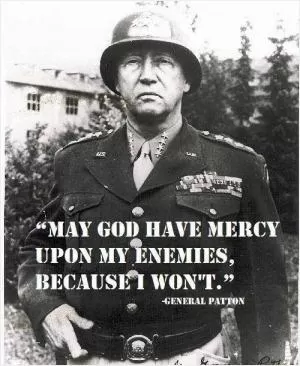




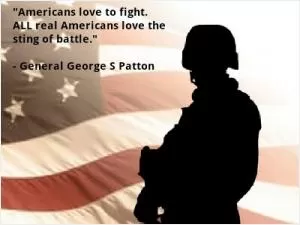
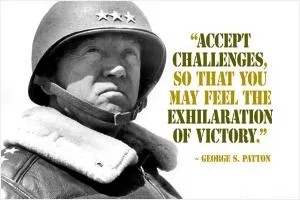

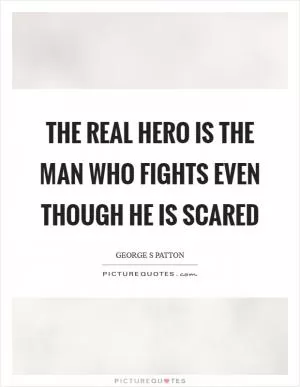


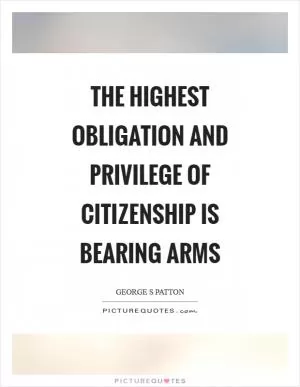
 Friendship Quotes
Friendship Quotes Love Quotes
Love Quotes Life Quotes
Life Quotes Funny Quotes
Funny Quotes Motivational Quotes
Motivational Quotes Inspirational Quotes
Inspirational Quotes